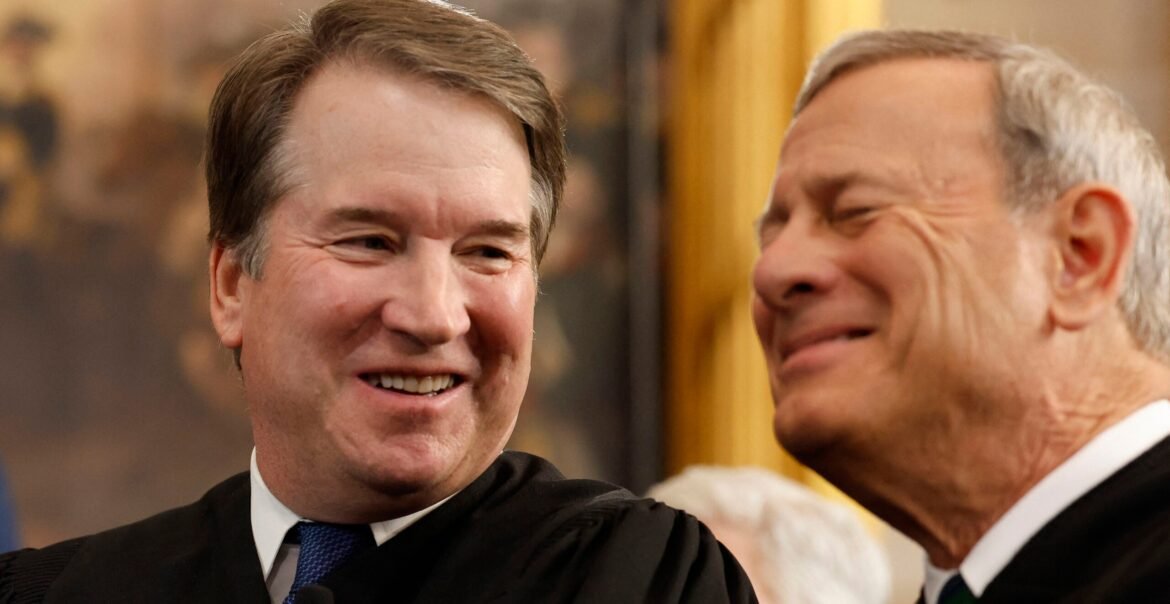The Supreme Court heard a religious freedom argument Monday out of Louisiana concerning whether individual government officials may be forced to pay legal damages for violations of a primary First Amendment protection.
In Landor v. Louisiana Department of Corrections, the court is considering whether a prisoner can sue a prison official in his personal capacity for damages under the Religious Land Use and Institutionalized Persons Act of 2000, which forbids government from imposing a “substantial burden” on incarcerated people’s religious free exercise rights.
The plaintiff, Damon Landor, had grown long dreadlocks as part of his practice in the Rastafarian religion. Officials honored his faith when he was incarcerated in 2020 on a drug offense, but after he got transferred with three weeks left in his sentence in 2022, a prison guard required him to have his head shaved.
Landor petitioned for the right to sue the guard for monetary damages under the Religious Land Use and Institutionalized Persons Act. The trial court and the 5th Circuit Court of Appeals both determined he wasn’t entitled to financial damages.
Justices expressed some skepticism about the plaintiffs’ arguments.
Zachary Tripp, co-head of appeals and strategic counseling at the law firm Weil, argued for the plaintiff. Tripp told justices that state prison guards know what federal law they must follow when working at a facility receiving federal taxpayer dollars.
“If a person goes to work for a federally funded program, they take the job subject to the conditions that the Congress attached to the funds,” Tripp said. “They are already admitting they are bound by the substantive condition by virtue of their choice to work as officers in a federally funded program.”
Justice Brett Kavanaugh said establishing the amount for relief seemed difficult, as the plaintiff’s petition asks for “appropriate relief.”
“The hard part, as I see it for your case, for me, is that you need a clear statement,” Kavanaugh said. “And ‘appropriate relief,’ it’s not as clear as it could be in encompassing damages.”
Later, Justice Katanji Brown Jackson repeated the plaintiff’s reasoning.
“These individuals as third parties are not just people in the world,” Jackson said. “They are employees of recipients of federal funds. So, to the extent that the recipient of federal funds has made clear with the federal government that it is going require its employees to comply with RLUIPA and not violate people’s rights, then when those employees decide, choose, consent to accept a job with that employer, they are thereby consenting to uphold those agreements.”
Tripp replied, “That is exactly right,” and added that the principle has applied to employees and contractors in past court rulings.
However, Justice Samuel Alito sharply criticized the conclusion.
“Your answer that you just gave to my colleague is based on legal fiction, right?” Alito said. “If you are hired as a prison guard in Louisiana, you don’t sit down and say, ‘Here is our agreement with the federal government … and you should look over it because you’re bound by it.’”
Tripp said he doubts that happens. Even so, he argued, “We do have amicus briefs from other correction officials that talk about how there is training on compliance with federal law, and that individual capacity damages are the norm.”
Interestingly, the conservative-leaning Becket Fund for Religious Liberty, which litigates in favor of religious expression, and the left-leaning Americans United for Separation of Church and State, both filed briefs to the high court in favor of the plaintiff.
Ahead of the argument, Attorney General Liz Murrill stressed that Louisiana protects religious liberty, but this case is about something else.
“Ten federal courts of appeals have held that the federal Religious Land Use and Institutionalized Persons Act does not allow prisoners to sue prison officials in their personal capacities for damages,” Murrill said in a statement. “We condemn the conduct as alleged in this case and have taken steps to prevent this problem from recurring. And we will continue to ensure that Louisiana law is available to deter and provide a remedy for infringements on religious liberty.”



